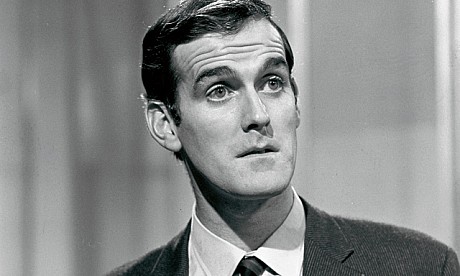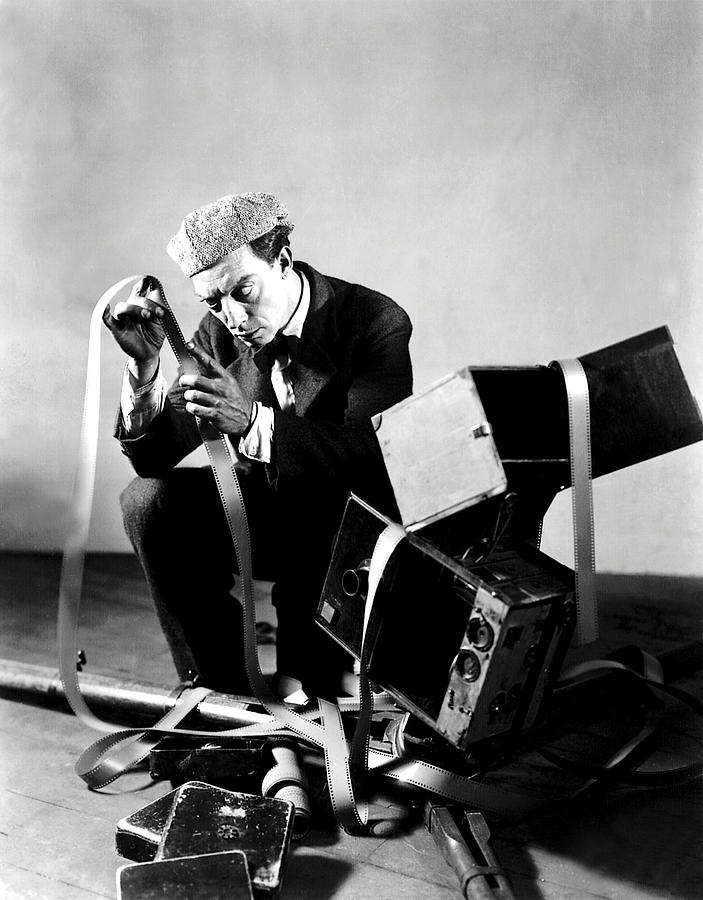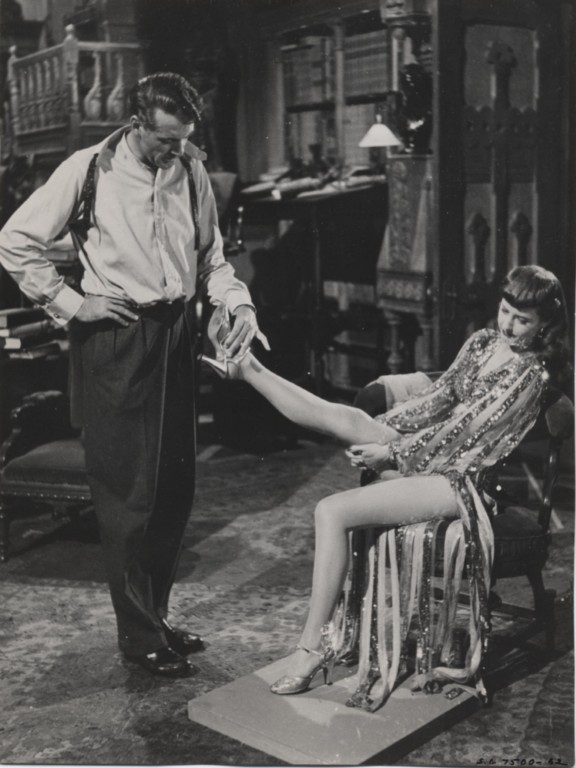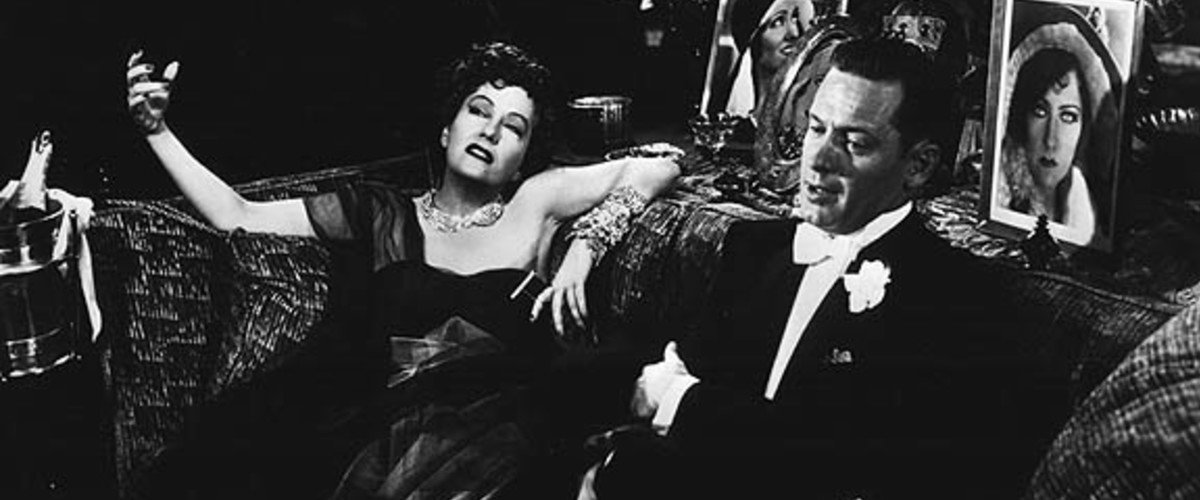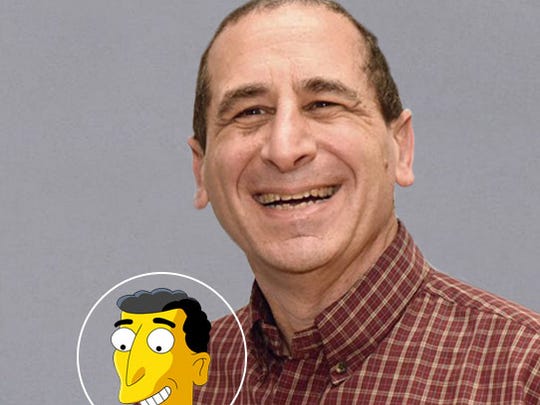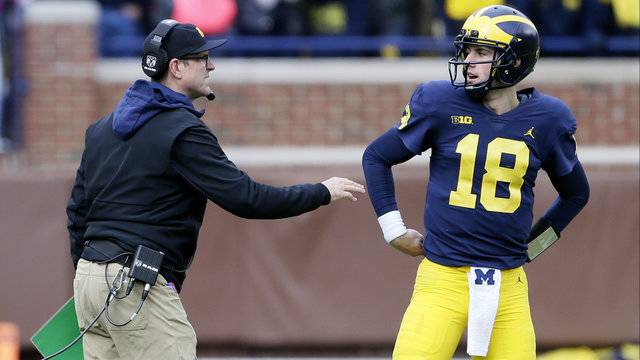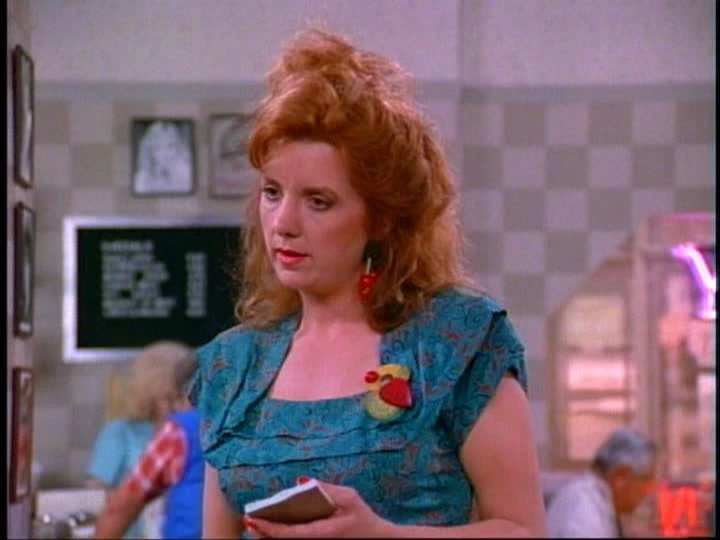Wednesday, October 31, 2018
Tuesday, October 30, 2018
DM
Today is David Mamet's birthday. He's written and directed a fair number of movie and TV shows, and been nominated for Emmys and Oscars. But I think his best work has been for the theatre.
Among his plays are American Buffalo, A Life In The Theatre, Glengarry Glen Ross (Pulitzer Prize), Speed-the-Plow and Oleanna. He's known for his dialogue, which is punchy, with people constantly interrupting each other--some call it naturalistic but I've always found it highly stylized.
I've read some of his books about theatre and film, and seen his "master class" on video. I like that he's a no-nonsense guy. For instance, actors shouldn't worry about subtext or 50-page biographies of their characters, they should worry about saying their lines clearly. (Actors may not agree with his take on things, but they love to perform in his plays).
As for writers, it's all about the story. Not sending a message, or solving a problem, but entertaining an audience with an interesting plot. All you have to do is make the audience wonder what's going to happen next. That's all.
If you think of something interesting that doesn't move the story ahead, cut it. You may come up with all sorts of fascinating characters and moments, but they've got to go if they don't serve the plot. And don't have the characters constantly talking about stuff that happened in the past--the action's happening now.
When figuring out the plot, solving the characters' problems shouldn't be easy. If it's too easy for you, it'll be easy for the audience, and they'll be ahead of you. And for the show's resolution to be satisfying, it's got to be surprising yet seem inevitable.
How do you know what works? You don't. Write a show and get it out in front of an audience (a paying one) and find out. It's the only way.
Monday, October 29, 2018
Why Not Ping?
This is an important date in world history. One this day in 1972, Pong was released.
It was a huge success, jumpstarting the videogame industry. Crude by today's standards (crude by 1978's standards), it offered people a chance to play a simple game, batting a point of light back and forth with their own electronic paddle.
Designed by Allan Alcorn as a training exercise, it was released by Atari. Before being made available to the public, they tested it in a local bar. It was soon so popular that the excess of quarters being fed into the machine caused technical malfunctions.
After Pong's success was apparent, everyone tried to develop their own videogames. Interestingly, most of these were one-player games (or at least one player at a time) while Pong required two players.
I suppose videogames were going to break out sooner or later, but Pong gets the honor of starting the revolution. You know what? It's still kind of fun to play.
PS Maybe I should have done a separate post, but I just want to note that my favorite Angel, Kate Jackson, turns 70 today.
Sunday, October 28, 2018
Court Pool
A lot of people, left and right, have been saying for a while that President Trump may get to replace 3 or 4 Supreme Court justices in his first term. Supposedly, this knowledge will affect our vote one way or another in November.
It is true that control of the Senate does seem to determine whether the President can get a nominee through the process these days. It wasn't always so, of course, but since Clinton, I believe the President's party controlled the Senate during every successful nomination.
But will Trump get more picks before 2020, as everyone is either fearing or hoping? No one can say for sure, but my guess is no. By chance* (and this has no bearing on the future, of course), every President since George W. Bush has gotten two picks, and Trump has already hit his quota.
On the court at present is Roberts, Thomas, Ginsburg, Breyer, Alito, Sotomayor, Kagan, Gorsuch and Kavanaugh. The oldest conservative, Thomas, doesn't have any plans to leave (as far as I know) and, at 70, is still in good health (as far as I know). The other conservatives can be expected to stick around, unless something happens.
As for the four liberals, there are stories about health problems, but I don't think any of them would voluntarily leave as long as Trump is in office. (Though imagine if Trump got to replace one. It would make the Kavanaugh hearing look like child's play.)
So while the courts should be a factor in how you vote, I wouldn't count on any major changes in the next two years.
*Though perhaps the resignation of Kennedy wasn't entirely by chance.
Saturday, October 27, 2018
JC
John Cleese turns 79 today.
I've spent the week watching tours he's done, sitting down and answering questions for an hour or so. There's some repetition, but they're fairly entertaining. (He talks about a lot of things, though I'm most interested in his take on writing and performing comedy--I'm annoyed at all the audience questions about other stuff.)
I also reread his memoir, So, Anyway.... It's quite good, but only takes us up to the start of Monty Python. I look forward to Volume 2--and 3--since that would be the stuff I want to know most about.
Cleese, from the start, was my favorite member of Python, even before I knew their names. I grew up in Detroit and some episodes of Monty Python's Flying Circus were broadcast on the CBC well before they made it to American television, so at first it was just this mysterious, bizarre show to me. (And as it didn't feature normal credits where you were shown who was who, you didn't really get to know them individually.). A bit later--still before they appeared on PBS in America--a Canadian radio station played some of their records, which were hilarious, but now the group was even more inscrutable to me as disembodied voices. I had no idea how many there were, or what they looked like. On visits to Canada, I bought their records and books--once again, before they were even known in America. (I'm not bragging, and a poor brag it would be if I were. Just trying to explain my long and involved history as a devotee of the troupe.)
Eventually they made it to PBS, where Monty Python became my favorite show. There didn't seem to be that many fans at first--at least not that I was aware of. But their popularity, and their legend, kept growing. Then they did their movies, such as Holy Grail and Life Of Brian, and some starting calling them the Beatles of comedy. I can see that, though it's worth noting the Beatles, when they were a going concern, were the biggest act around, while Python took some time to attain their worldwide renown.
Cleese already had a reputation in Britain before Monty Python was formed--he was the best known performer in the group, and was the one the BBC wanted to be in business with (along with his partner Graham Chapman, though it's clear Cleese pulled most of the weight in that writing team). Cleese was the one who decided to bring the others along.
Though they're all fine writers and performers, I'd have to say Cleese was the best at both. I admit I waver on this--how can I say he's a better actor than Palin, or Idle, or Chapman, etc.--but overall, he's the guy.
And I'd say Cleese has had the most successful and interesting career outside Python. I understand you can make a case for some of the others, like Terry Gilliam, who became a major director, or Michael Palin and Eric Idle, who were involved in fascinating projects of their own. But for Fawlty Towers alone you've got to give it to Cleese. Not to mention A Fish Called Wanda.
So happy birthday, John Cleese. One of the true giants of comedy in the past 50 years.
Friday, October 26, 2018
Fourteen In The Side Pocket
Here's a name that hasn't been in the news for a while--Sinead O'Connor. And now that's not her name.
In an unexpected move (I suppose), O'Connor has converted to Islam. I'm not sure why, but here's part of her tweet under her new name Shuhada' Davitt:
This is to announce that I am proud to have become a Muslim. This is the natural conclusion of any intelligent theologian's journey. All scripture study leads to Islam. Which makes all other scripture redundant.
This isn't so much a theological argument as a proclamation. I'm not saying it's right or wrong, but one does expect if a person converts, she believes she's moving to a more truthful (and perhaps most truthful) religion.
So good luck, Shuhada'. I hope you find peace and fulfillment.
Thursday, October 25, 2018
RPMs From RM
Roger Miller died, too young, on this day in 1992. He was only 56. (It seems to have been a smoking-related death.)
While his career as a singer and songwriter lasted for decades, almost all his most memorable stuff came during a short burst of creativity in the mid-60s.
Wednesday, October 24, 2018
Structure
I've noted a number of times a problem many biographers have. Often, the life they're writing is fascinating for a number of years, then a lot less so. But a biography has to treat it all . This is especially bad when the subject does the most interesting stuff early.
A good example is Buster Keaton. A great cinematic artist, he did all his best work from 1920 to 1929. When he was done, he still had half his life left to live. Not that the rest of his life is boring (though a lot of it is depressing), but the reason you want to know about him is that magical decade. When it's over, there are still a lot of pages to go. Of minutes if it's a documentary.
Peter Bogdanovich, I'm happy to say, has solved this problem in his film The Great Buster. It may not be groundbreaking (the best doc on Buster is still probably the 3-hour A Hard Act To Follow), but he figured out how to structure it.
The film starts with Buster's early years as a child star on stage and then co-star of Fatty Arbuckle. Next are the early 1920s where he makes a series of classic shorts. What followed them were his features, as great a body of work as you'll find in cinema. But when that's done, we'll have his years of failure and lesser success up till his death in 1966.
Now you can plays the later years as a storyline--he hits a low point and then straightens out his life, and at the end he's finally recognized by the world as a master. But Bogdanovich does something even better. He simply notes, after discussing the shorts, that Buster made a number of great features in the 20s, and we'll return to them.
He then skips all the way to the end of the decade when Buster's contract was sold to MGM, followed soon by his early talkies and his life and career bottoming out. He takes us all the way to the end of Buster's life and then doubles back to spend time on each of his great features, which are the proper climax for the film. So congratulations, Bogdanovich, you cracked it.
(Though I do have a slight complaint. He treats The Cameraman, Buster's first film for MGM, as the beginning of the end. It's true the MGM contract would not work out artistically, but Buster still had enough freedom in his first feature there that I'd say The Cameraman stands alongside his other great silent films--sort of the same way A Night At The Opera stands alongside the Marx Brothers' Paramount films, even though MGM eventually ruined them as well.)
Tuesday, October 23, 2018
JB
Jerry Bock was born 90 years ago today. His name may not be as well known as contemporary Stephen Sondheim, but I wouldn't be surprised if his music has been heard by more people.
Monday, October 22, 2018
The Other Guy
I just read It's The Pictures That Got Small, an edited collection of Charles Brackett's diary entries from 1932 to 1949. Brackett is best known as Billy Wilder's screenwriting partner from the mid-30s to 1950, which explains why these dates were chosen.
Neither Brackett nor Wilder were world-beaters when they were teamed up, but both had talent and, together, became one of the top writing teams in Hollywood, creating many fine screenplays: Midnight, Ninotchka, Ball Of Fire, The Major And The Minor, The Lost Weekend and Sunset Boulevard, to name a few.
Wilder usually gets most of the attention because, in 1942, he became a director, and we've got a director-centric view of movies. Also, after they split up, though Brackett went on to producer a number of decent films, Wilder made more classics such as Stalag 17, Some Like It Hot and The Apartment.
But Brackett was a major figure who's too easy to forget. He and Wilder couldn't have been more different. Brackett, more than a decade older, was a WASP--a rock-ribbed Republican of American ancestry, and a respected novelist and playwright--while Wilder was a Jew--a liberal, mercurial foreigner who escaped Germany and wasn't working in his native tongue.
Brackett regularly notes their tension. I don't think there's a year without an entry about how they're about to break up, or should break up. (Yet when it finally happened in 1949, by Wilder's choice, Brackett does seem a bit surprised.) Of course, a good writing team needs tension--as Wilder noted, without it, you've got two guys pulling on the same side of a rope.
It's not all about their screenplays. There's plenty about parties, and lunches (often at Lucey's, across from Paramount and not far from where I presently live), and other Hollywood projects Brackett was involved in--both films and his work with the Screen Writers Guild and the Academy.
We also get to know Brackett's opinion on many of his contemporaries, and it's often negative. For instance, he meets and doesn't particularly like big names such as Howard Hawks, Frank Capra, Orson Welles and Charlie Chaplin. He also has some ungracious things to say about the looks and talent of a number of actors and films. And yet, with all this, he seems a nice enough guy.
But it's the Wilder stuff we're most interested in. Unfortunately, there's little insight into their working habits. They just got together and did what they did, even if Brackett was often annoyed with Wilder. He's more voluble when it comes to the many meetings with stars, directors and producers, and the screenings of works in progress.
For instance, when Ball Of Fire was being cast, a number of major female stars, such as Carole Lombard and Ginger Rogers, turned it down. They tested Lucille Ball for the lead and Brackett though she was just right, though Wilder felt she was a B-actress. So the part went to Barbara Stanwyck, whom Brackett thought was wrong for the role (though she did a fine job).
Also, for years all we've heard was Wilder's point of view. Brackett provides a new take on old stories. For instance, Wilder claimed one of the reasons he needed to direct was that directors like Mitchell Leisen didn't respect his screenplays. Perhaps, but Brackett doesn't seem to have much problem with Leisen, meeting with him a number of times after Wilder started directing to discuss various projects he and Leisen might work on.
And then there's Double Indemnity, the one film--and quite a film it is--that Wilder directed while they were a team that Brackett didn't co-write. The story goes Brackett was turned off by the seamy source material and wanted nothing to do with it. Once again, perhaps. But Brackett never mentions this, and gives the impression that they simply drifted apart for this project, and, in fact, Brackett helped out Wilder with some of the writing once the project was underway.
There are those who claim, due to Brackett's influence, that Wilder's earlier scripts are superior to--or at least classier than--his later ones (which were often written with younger partner, I.A.L. Diamond). I don't know if I agree with that, but I can say you can't really appreciate Wilder's career without recognizing no collaborator was more important than Brackett. This book helps give insight into a man about whom too little is known.
Sunday, October 21, 2018
Dancing With The Devil
This date in 1858 was the premiere of Offenbach's operetta Orpheus In The Underworld. It remains one of his most popular works.
The most famous piece in it is the "Infernal Gallop," which became known, on its own, as perhaps the most famous can-can in the world.
Saturday, October 20, 2018
Friday, October 19, 2018
Reiss Remembers
I just read Springfield Confidential, a book mostly about The Simpsons. I say mostly because it's by Mike Reiss, who was on the show's writing staff at the start, and has been working there, on and off, since. He spends a certain portion of the book telling us about his life and other comedy projects, but he knows why people are reading the book, and gives us plenty of hot poop about what The Simpsons is like behind the scenes.
I'd heard of Reiss, and writing partner Al Jean, well before The Simpsons. They wrote for National Lampoon and did an excellent parody of these essay-ads that were around at the time--their essay was how to write pornography by Thurgood Marshall. (Reiss informs us that Marshall saw the piece and got the FBI to investigate the two). Reiss and Jean, who'd met at the Harvard Lampoon, went on to write for shows like ALF and Sledge Hammer!, and then, not being able to get the job they wanted, settled for The Simpsons--an animated prime time comedy that everyone knew would be off the air in six weeks. (To be fair, some optimists thought it might last thirteen.) This may be the secret to the show's success--no one figured it had a chance, so the writers decided to do the things they could never get away with in conventional TV scripts (like putting in lots of clever jokes). It helped that they had the protection of powerful producer James L. Brooks, who made sure the suits had no say in the production of the show.
The writing staff was headed by Taxi and Cheers veteran Sam Simon. From the start the show was a huge hit for the fledgling Fox network. Everyone gave credit to Matt Groening, the underground comic strip artist who invented the characters, which annoyed Simon so much that it started a feud.
After setting up the basics of the show, Simon left and Jean and Reiss were handed the reins. Since then, others have been showrunner, though Jean came back and has done it for years (while Reiss sometimes wrote and consulted, and otherwise did his own projects). I actually interviewed Jean in this capacity several years ago, though Reiss was nowhere to be found at the time.
Reiss believes for every set up, there's the perfect punch line. It can take a long time to find, but it's out there. One example he gives is from an early episode where Lisa wins a beauty pageant but becomes so outspoken that the sponsors want her out, so they search through the application filled out by Homer to find a mistake as a pretext to replace her. It's got to be an innocent mistake, serious enough for dismissal, but not too stupid, too lazy or too nasty. Above all, it's got to be funny. The writers' room pitched and pitched but nothing was just right, until one guy who rarely spoke cracked it: "In the space marked 'Do not write in this box," Homer wrote 'OK.'"
Reiss goes into detail about how the show is written. Or more accurately, rewritten. The show may itself be funny, but the process is pretty serious. After a story pitch is accepted, the writer goes home to create the script in a couple weeks. Then the writers' room rewrites it a few times. Then there's a table read with the actors and staff, after which there's another rewrite. Then the cast, directed by a writer, records their lines. Then there's a bunch of editing, designing, storyboarding and animating. Then there's a screening, followed by another rewrite. Then it's sent to Korea for complete animation, followed by another screening and another rewrite. Next is more editing and mixing, as well as scoring. The whole process takes about nine months. (The show can't be timely because of this, but many have noted how prescient the show has been.)
Reiss also tells us about the characters, the actors, the guest stars, the popularity, the censorship, the movie--in general, all things Simpson. It's very entertaining to hear about this stuff, even though I stopped watching the show maybe fifteen years ago. (A common question Reiss gets is why isn't the show funny any more. Without admitting anything in particular, he does note that shows, like people, get tired--especially when the writers have run the characters through a few thousand plotlines.)
The book, as you'd expect, is jokey. But Reiss is a pro, so it's mostly funny jokey. He also isn't afraid to name names--he expresses his distaste for a number of executives, comedians and TV shows. There are a lot of Simpsons books out there, but your bookshelf should have room for this one.
Thursday, October 18, 2018
Tur-ump
I just read Katy Tur's entertaining book Unbelievable, about her year and a half embedded with the Trump campaign. If you're looking for a beat-by-beat story of how Trump went from candidate to president, this isn't it. She leaves out large parts of that tale to concentrate on her personal story.
She had a dream job in London and a French boyfriend, both of which she gave up to cover Trump for NBC. Not that it was a plum assignment. In fact, she wasn't considered a major political reporter back then and probably got it because the network figured Trump would be good for a few laughs before he went away.
She had a tiger by the tail, and it was tough work. She describes the cheap accommodations, endless travel, lousy food, attempts to look good (or just alert) with little sleep. And then there's mercurial Trump himself, often attacking her by name in front of frenzied crowds.
She made her bones on Trump, but her portrait isn't too kind. His operation is amateurish, his followers are hateful, and the candidate himself comes across as a gaffe machine, alternately lying and speaking gibberish.
Certainly Trump wasn't a seasoned politician--which, I guess, was part of his appeal. And it's true, he said a lot of absurd things. He also didn't handle criticism well. But only rarely does she try to deal with his populist appeal, speaking for those who felt they'd been forgotten by the establishment. Sometimes, between the lines, I sense a grudging admiration, but mostly she seems dismissive.
In trying to explain how unpopular the press is, she states
we dislike and ultimately distrust the media because journalism, honestly pursued, is difficult and uncomfortable. It tells us things about the world that we'd rather not know; it reveals aspects of people that aren't always flattering. But rather than deal with journalism, we despise journalism.
That might be part of the story, but it's a bit vainglorious. Sure, people don't like to see their candidates attacked, or their beliefs questioned, but sometimes the press can't separate its own political views from its reporting. And it's true, real journalism is hard--which is why so often, if you actually know about a subject, when you read a news report you feel they don't quite get it.
Perhaps if Tur understood that more, she'd be a better reporter.
Wednesday, October 17, 2018
Getting Ahead
In my local library, I noticed there was a book by Jenna Fischer entitled The Actor's Life. I thought to myself I like Jenna Fischer--she played Pam on The Office--but has she had enough of a career yet to write an autobiography?
Turns out I misunderstood. Paging through the book, I realized it was a guide for those who want to make it as an actor. Nuts and bolts sort of stuff. She gives practical advice, based on her years struggling to make it: how to create a resume, how to get an agent, how to audition, what sort of day job to have, how you've got to move out to Los Angeles or New York, and so on.
The section I stopped to read (mostly because it had a lot of pictures) was her passage on headshots. A headshot is your calling card. A lot of casting is based on type, and the headshot tells the casting director in a second if you fit the role. A headshot should not be a glamor shot--you're selling yourself, so if you come in and look like someone different, the people in charge will not be pleased.
Fischer's advice is to think of five adjectives that describe you, or at least what you're going for. And then hire a professional headshot photographer to make sure it comes across.
She reprints her early headshots, which are pretty awful. Then she gets a really beautiful and professionally done photo where she looks sultry. As great as the photo is, it's wrong--that's not the type she should be going out for. She's probably not going to be cast too often as a sexpot.
She thought about it, and figured her five adjective were sweet, trustworthy, open, cute and vulnerable. So she had another photo taken and this one was perfect. It showed her natural beauty, but was more sweet, trustworthy, etc.
In fact, it's the photo that got her Pam. Fischer includes the description of the character when they were casting The Office, and the headshot is just what they're calling for. Years later, she spoke to the show's casting director who still remembered Jenna's headshot.
Once you're in the door, you've got to prove yourself. But getting in the door, and being remembered after you leave, counts just as much when you're starting out.
Tuesday, October 16, 2018
Very Witty, Wilde
Oscar Fingal O'Flahertie Wills Wilde was born in 1854 in Dublin on this day. A poet, essayist, lecturer, editor, novelist and playwright, his greatest invention may have been himself. A great wit--there was none greater in his time--he's still regularly quoted today. (He also gets lots of good lines misattributed to him.)
Many of his witticisms are so famous, I probably don't need to repeat them. Nevertheless, here are some of my favorites.
As a young man, he moved to England. As he was walking down Piccadilly someone said "There goes that bloody fool Oscar Wilde" to which he responded "It's extraordinary how soon one gets known in London."
As a student at Oxford, he was given a New Testament passage to translate. The examiner heard enough to know he'd passed the exam and asked him to stop. Wilde pleaded "Do let me go on, I want to see how it ends."
One of the earliest lines that gained him fame was his aesthetic declaration "I find it harder and harder every day to live up to my blue china."
In France (and in French) a lady, in a self-deprecating manner, said to him "Am I not the ugliest woman in Paris?" In a flattering tone, he answered "In the world, madam."
When going through customs in America, he was asked if had anything to declare. "Only my genius." (There is some doubt about this story, but I choose to believe it.)
He said of fellow playwright and Dubliner George Bernard Shaw "he hasn't an enemy in the world, and none of his friends like him."
Then there's the favorite of many--discussing Dickens' The Old Curiosity Shop, he noted "One must have a heart of stone to read the death of Little Nell without laughing."
Monday, October 15, 2018
JG
You ever stop and think if everyone shared your taste how different the world would be? For instance, if people liked the same music I like, one of the top-selling bands of all time would be the Dead Milkmen, while no one would have heard of Celine Dion.
Anyway, today is the birthday of Joe Genaro, aka Joe Jack Talcum and other names. He's best known as a songwriter, guitarist and occasional lead singer for the Dead Milkmen. (Usually the lead singer was Rodney Linderman, aka Rodney Anonymous aka Rodney Amadeus Anonymous aka Rodney Anonymous Mellencamp.)
Sunday, October 14, 2018
Hail Yes
The Wolverines looked pretty impressive in their 38-13 victory against Wisconsin yesterday. No one scored in the first quarter, but by the half Michigan was clearly outplaying the Badgers. By the end of the third quarter, it was pretty much wrapped up (a rare event for Michigan fans).
With all the upsets yesterday, Michigan can expect to climb back into the top ten. The team hasn't looked better this season, and a lot of fans are thinking if only we hadn't lost that first game to Notre Dame 24-17, we'd be in the top four.
But just how good are the Wolverines? We'll have a better idea after the next two games, Michigan State and Penn State. Both should be tough. After that, Rutgers and Indiana shouldn't be too much trouble. Then the season ends with--what else?--Ohio State, and if Michigan can hold on it promises to be another classic clash.
But I'm not quite convinced they've got it in them to compete at the highest levels. Even if you throw out the losing game, both the offense and defense, as good as they've been, have shown themselves to be pretty sloppy, and inconsistent. And the kicking isn't great (a common problem for Michigan).
What they've got may be good enough to beat midrange teams, but can they take on the best? That's yet to be seen. But one can hope. Coach Harbaugh has had trouble winning the big games. Maybe this is the year that changes.
Saturday, October 13, 2018
Simple Simon
Paul Simon turns 77 today. I wonder what it's like to be a aged wunderkind, having conquered the musical world by your mid-20s. Not that he hasn't been busy in recent year. He takes his time putting out albums, but he always seems to be working on something.
I just read Robert Hilburn's fine biography of Simon (the second bio of Simon to come out in less than a year). Hilburn has been a music critic since 1970, and he writes with sensitivity and understanding of his subject.
I won't retell Simon's story here--that's easy enough to find out. And if you want to hear his music, I suggest you go to YouTube and listen all day.
Simon has had two careers--his work as (the more important) half of Simon and Garfunkel and his solo work. Both were successful, artistically and commercially. If he has a flaw, he's a bit too tasteful--seemingly afraid to let go. But there are considerably worse flaws.
He seems like a nice enough guy, if sometimes a little overparticular. One story that sticks in the mind from Hilburn's book (though maybe it's a bit unfair to fixate on it) was what happened soon after he wrote "Bridge Over Troubled Water." He thought it was a special song, maybe his "Yesterday."
And when S&G introduced it in concert, Garfunkel would sing it alone, accompanied by a pianist, while his partner watched in the wings. And Simon wasn't happy that Garfunkel would get thunderous applause during his bow, and would then introduce the pianist, but not Paul himself.
If this is true, Simon does seem a bit petty. First, his fans know he wrote it, as he wrote all their songs. Second, isn't it enough to see your song, sung beautifully by your partner, get huge applause? Third, Simon would have plenty of time to shine during the rest of the concert. And fourth, having written it, he'd be the one making the millions in royalties over the years.
So please, Paul, let Artie have his moment. He's got it tough enough.
Friday, October 12, 2018
Play Him Off
It wasn't much noticed, but last week, Conan O'Brien's show left the air.
Don't get me wrong--he'll be back, but in a different format. Three months from now, he'll debut his new half-hour show. What'll that be? As he explained in his last regular hour: "I'm talking about travel shows around the world; silly remote pieces; interviewing brilliant, distinct people. Really just focusing on the stuff that we love the most."
He's putting a good face on it, but it means his traditional talk show, which he hosted in different venues over the past quarter century, is dead. I guess it was too expensive, and the ratings weren't high enough. It makes you wonder why they're keeping him on the air at all--perhaps he's still got a contract with TBS, so as long as they're paying him...
Anyway, I'll miss the old Conan (and am not too intrigued by his new show--his hour-long travel shows were not my favorites). I admit I didn't always watch him on TBS, and thought his best years were on NBC after the Tonight Show. But his style and sense of humor still added something to late night that you couldn't get elsewhere.
I'll miss his band, too.
Thursday, October 11, 2018
NH
Neal Hefti died ten years ago today. A jazz musician and musical arranger, he was best known as a composer, creating some of the best known--and best--movie and TV themes ever.
Wednesday, October 10, 2018
Webbing
Here's an intriguing list of the top websites in America. There are no surprises at the top--we start with Google, Facebook and YouTube. I'm not much of a Facebooker, but, like almost everyone else, I use Google as a portal, and waste a lot of time watching YouTube videos. (There were plenty of search engines before Google--I'm still not sure how it took over, but it sure did.)
Next is Amazon, followed by Yahoo. Amazon is interesting. I would have guessed it's the top shopping site, but how much time do people spend shopping online? Apparently, a lot. And though I occasionally check out Yahoo, somehow I'd gotten the impression it was yesterday's news. Guess I'm wrong.
Twitter is #8 and eBay is #9. While I'm not surprised, I admit I don't really spend any time with either.
You may note I skipped over 6, 7 and 10. Guess what? They're porn sites: pornhub, xxnx, and xvideos. I figured porn was popular on the internet, but I had no idea.
Looking at 11-20, we see such names as Wikipedia (definitely in my top ten), Instagram, Reddit, Craigslist (more shopping, though I'm not sure how it makes money), Bing (but everyone told me Bing is a joke), xhamster (not a pet site) and ESPN.
Check out the whole list and see how your favorites match up.
Tuesday, October 09, 2018
Flunking College
A number of people--invariably Democrats--have been complaining about our Constitutional system lately. For instance, the suddenly famous socialist Alexandria Ocasio-Cortez tweets "it is well past time we eliminate the Electoral College, a shadow of slavery's power on American today that undermines our nation as a democratic republic."
I'm afraid she's got historical illiteracy to go along with her economic illiteracy. There are a number of reasons we set up the Electoral College, and there are decent arguments pro and con, but to emphasize slavery's power, and not the fears of small states forced to go along with mob rule (not to mention the Founders being a little frightened of pure democracy) is just weird.
But the complaints don't stop there. Democrats also want to change the rules of the Senate--why should Wyoming and California get the same number of senators? Well, whether or not you think this is a good idea, it was a compromise that allowed this nation to be formed. And, of course, since it can't be changed without the consent of these small states, don't hold your breath.
Then we get to the real bone of contention at present. They're unhappy with Bret Kavanaugh's confirmation. There's a tweet going around that wraps it up pretty well:
We are a country where two presidents who both lost the popular vote have now placed four justices on the Supreme Court. Democracy in action.
Of course, this is all sour grapes. They're not complaining out of principle, but because they believe the system isn't working for them (and the GOP defends the system not out of principle, but because they believe it's a good deal for them). I bet if we did make radical change, the Democrats might get some unpleasant surprises, and could just as quickly wish for the old days.
In any case, I question their reading of the stats. Look at the tweet directly above. They give a false impression of the numbers. For one thing, George W. Bush actually won a majority of the popular vote in 2004, after which he got to make his two picks for the Supreme Court, Roberts and Alito.
Meanwhile, Bill Clinton was elected in 1992 with only 43% of the vote--far less than Bush or Trump got--yet he followed that election with his two picks for the highest court. (Note he also got less than a majority in his 1996 reelection). Would the Democrats really be happier if they had been denied Ginsburg and Breyer?
Monday, October 08, 2018
Bill's Brain
Some say wisdom comes with age. Which is perhaps why William Shatner, in his late 80s, has written Live Long And..., a collection of the insight he's gathered over the years. It's a short book (that sounds like an insult, but it's truly a short book) where, right from the start, Shatner admits he's no guru, and certainly doesn't know the secret of life. Well, that's a start.
The wisdom tends to be stuff like work hard, stick to your principles but don't be rigid, exercise and eat well, care about your loved ones, etc. Nothing earth-shattering, much less galaxy-shattering, but then, how many are buying this book to learn important life lessons? They're buying it because the author was captain of the Enterprise, flying his ship amongst the stars, saving us all more times than we can count.
We want to hear his personal stories, not life lessons. And Shatner doesn't disappoint. He writes about how he was shattered as a child when his mother told him she loved his father more than she loved him. About how he, a poor boy in Montreal, saved up to do the one thing he needed to do--ride a horse. How as an unknown he understudied Christopher Plummer in Henry V, and had to go on one night though he was underprepared. How, decades later, doing a one-man show, he drove like a maniac overnight from New York to Illinois through a harsh snowstorm because the show must go on.
He's written about his life before. (Live Long And... has a co-author, David Fisher, who's written other books with Shatner--one thing Shatner learned over the years is have a professional help you with writing assignments.) But we can still find out new angles on old stories. For instance, he discusses his friendship with Leonard Nimoy, and his disappointment over how they had a falling out though Shatner was never quite sure why. (He also notes how other crew members of the Enterprise hated him for years, though, once again, he isn't sure why.)
Shatner has led an odd life. As a young man, he was handsome and talented and looked to be on the edge of a major career--either as a movie or TV star. Then he got the lead in a sci-fi series on NBC that never got great ratings and was canceled in three years. After that, he got divorced and for a while was living hand to mouth--it seemed he hadn't fulfilled his early promise. And then, improbably, that series became huge in syndication, spawned several movies, among other things, guaranteeing Shatner would never be forgotten (and never be poor). There was a short period--it's hard to remember it was so long ago--when Star Trek fans thirsted for any knowledge about the show or its stars. Now you could fill a small library with all the books on the subject. Live Long And...--which of course takes its title from a Star Trek phrase--is hardly the best of them, but it's still nice to have around.
Sunday, October 07, 2018
The Quicker Talker Faster
I recently bought a pack of Bounty paper towels. I noticed something on the package.
I've noted before that sometimes it seems English can express ideas in fewer words than other languages. Well, on the back of the package were the words TRY NAPKINS. Underneath were translations in both Spanish and French.
Spanish: PRUEBA LAS SERVILLETAS.
French: ESSAYEZ LES SERVIETTES DE TABLE.
Quite a difference. Especially the latter translation. Though I suppose it might have something to do with French fastidiousness--they apparently have serviettes for various functions, so you've got to be specific.
Saturday, October 06, 2018
Black Is Back
I was flipping through the channels when I saw Lewis Black doing stand-up. He had a bit about how he was watching the President talking on TV and it occurred to him that one of them was crazy, and it wasn't him.
I thought the joke was kind of tired, but sort of what you expect these days. It wasn't until I watched a few more minutes that I realized he was talking about George W. Bush.
I checked and discovered the show was Lewis Black: Red, White and Screwed, recorded in 2006. (I did think that Black looked pretty good.)
That's the great thing about being a comedian these days. I suppose all you have to do is wait for a new Republican to get elected and you can recycle your material.
Friday, October 05, 2018
Off The Beatle Track
I was going to do a tribute to Geoff Emerick, the great recording engineer for the Beatles, who just died. Instead, let me recommend his excellent book, Here, There And Everywhere, where he discusses working with the band (who don't always come off great).
And let's note the anniversary of the Beatles' first true single, "Love Me Do," released October 5, 1962. Emerick, though just a teenager, was there to witness the recording session. The song went to #17 in England, high enough to make it worthwhile for EMI to continue recording the band. (If it had flopped, they probably would have dumped them and that would have meant the end, instead of Abbey Road's "The End.")
The band became so huge that there was a cottage industry in songs responding to the phenomenon:
Thursday, October 04, 2018
UTBU
I've met a lot of actors, living here in Los Angeles. They tend to be pleasant. Maybe it's because actors are naturally gregarious. More likely they learn early on that you never know who may cast you some day, so it's better to be pleasant. There was a flop on Broadway in the 60s entitled UTBU, which stood for Unhealthy To Be Unpleasant. That's the actor's motto.
I'm talking about regular actors. Rules don't apply to stars. They can do whatever they want and people still want them (until they stop being stars, after which, watch out).
I was thinking about that when I heard Jason Alexander telling a story about the Seinfeld pilot. Originally called The Seinfeld Chronicles, it featured Jerry, of course, along with his friend George and wacky next-door neighbor Kessler (soon to become Kramer). Oh yes, it also starred Claire the waitress, played by Lee Garlington.
Don't remember her? Her character was replaced by Julia Louis-Dreyfus as Elaine. The story Jason Alexander tells is that she suggested line changes to producer Larry David, and that was it. The official story is that after the pilot they wanted a female character who could hang with the guys, and you can't really have a waitress do that. (Also its claimed Louis-Dreyfus was sexier.) I buy that story. It makes sense. But I can't be sure that the script changes didn't play a part.
I'm reminded of the pilot of The Mary Tyler Moore Show. In it, Mary moves into her apartment, gets a job and breaks up with her boyfriend Bill who just graduated from medical school. The week before shooting, the show had been shaping up as a disaster.
Apparently, Angus Duncan, the actor who played the boyfriend, was heard to complain about how bad the script was. If you don't remember the character, or the actor, there's a reason. The producers might have brought him back, but they didn't need someone who thought it was a good idea to note, while they were trying to put the show together, that it was lousy.
It's not unusual for characters in the pilot to be dropped when the show is picked up. Most of the decisions are creative, not personal ones. But as a message to actors trying to break in to the big time--UTBU.
Wednesday, October 03, 2018
LB
Lindsey Buckingham turns 69 today. In the mid-1970s he and then-partner Stevie Nicks joined Fleetwood Mac. Their singing and songwriting, added to what was already there, turned to band into one of the top acts in the world. (Before the duo became famous, a lot of people thought she was Lindsey and he was Stevie.) Buckingham was also a master of the studio, polishing and perfecting the band's recordings.
Buckingham is apparently a handful. Even at this late date he's so much trouble that Fleetwood Mac, still touring, fired him earlier this year. Oh well, we've still got the music he made on those classic albums to carry us over.
Tuesday, October 02, 2018
Political Football
Some odd stuff in Peter Debruge's Variety review of Brian Banks, a fictionalized account of a real life college football player who was falsely accused of rape. Debruge notes the "timing could hardly be worse." Why? As he goes on to say:
Is this the movie the world needs now, one that casts doubt on survivor testimony and feeds a misogynistic culture's fear that "good" men can have their lives destroyed by such accusations...?
Hmm. Does it really cast doubt on "survivor testimony," or rather does it say that no matter who speaks, their testimony should be judged impartially based on the evidence. It's also sad that Debruge feels safe, perhaps even self-righteous, in asserting--in passing, mind you--that our whole culture is misogynistic. And why put "good" in quotation marks--we aren't afraid that actual good men can have their lives destroyed by false accusations? (And bad men too, while we're at it.)
Later, Debruge admits the film isn't quite that bad (so why the pointless preamble?), and notes the film
is by no means an apologia for sexual aggression, and no one would mistake it as such. If anything, this true story of an isolated case illustrates how infinitely complicated the issue of rape can be, demonstrating how systemic problems--most notably race- and class-based prejudices--result in someone like Banks being treated differently from people of privilege.
First, since the film is about a false accusation, why would anyone think it's making excuses for sexual aggression?
Second, Debruge hastens to note it's an "isolated case." The film may only deal with one case, but that doesn't mean there aren't thousands of others. (Elsewhere in the review, Debruge suddenly cares about numbers, citing an advocacy group's statistics to demonstrate there's a lot of sexual assault that doesn't end up in incarceration--this has nothing to do with the film at hand, but apparently shows Debruge isn't on the wrong side of an issue.)
Third, Debruge brings in race and class which, apparently, gets him back into his comfort zone. It's true, race and class are factors in the justice system. But guess what? Even privileged men can be falsely accused of crimes, and that's wrong, too.
I would hope most of us can agree we shouldn't trample over our society's liberal (or at least what used to be considered liberal) principles. Which is why it's always timely to tell a story like this. If anything, it's arguably more timely during the rise of the #MeToo movement, when society, in its zeal to right wrongs, has to be careful to make sure it's paying enough attention to due process.
Monday, October 01, 2018
All Aboard?
Yet another Lost knockoff.
Last week's debut of the NBC drama Manifest did pretty well in the ratings. The concept is simple--a flight takes off in 2013 but doesn't land until 2018, though no time has passed (okay, a bit over 3 hours) for the passengers.
There are about 200 people on board, and the show follows a handful. There's Michaela, a cop who was having trouble with her fiance. There's her brother, Ben, and Ben's son, Cal, who's got leukemia and doesn't look like he's going to make it. Then there's Saanvi, a medical researcher hoping for a breakthrough.
After being lost (and presumed dead) for over five years, they land and are reunited with their loved ones. Michaela discovers her fiancé--now a detective--has married her best friend. Ben's wife has changed, too, though the show didn't reveal too much in its (well-named) pilot. And Cal's twin sister, Olive, is now five years older than he is.
There's some good news. Saanvi's research has proved useful in treating leukemia, so if Cal can get in the program, he's got a good chance. Meanwhile, the authorities are investigating what happened, but not getting anywhere.
Oh yeah, on top of that, the people who were on the flight start hearing voices in their heads--their own voices, actually--telling them what to do. And if they ignore their voice, it gets pretty insistent. And these voices seem to know things, like slow down or you'll run over a kid about to rush into traffic, or investigate this lot where you'll find some children who have been kidnaped.
So that's the set-up. The question is am I willing to watch a series going down this path? I'm not sure if it's enough. The situation holds some interest, but enough to sustain? If this were a movie where the mysteries would be solved in two hours, or even a miniseries, I might take a chance, but year after year? On top of which, the characters, so far, aren't much.
So for now I think I'm going to pass. But if I hear good things, maybe I'll give it a second chance.
PS The biggest mystery they haven't yet dealt with. I would think the first thing the authorities would tell the passengers when they land in 2018 is "you'll never believe who's president."



